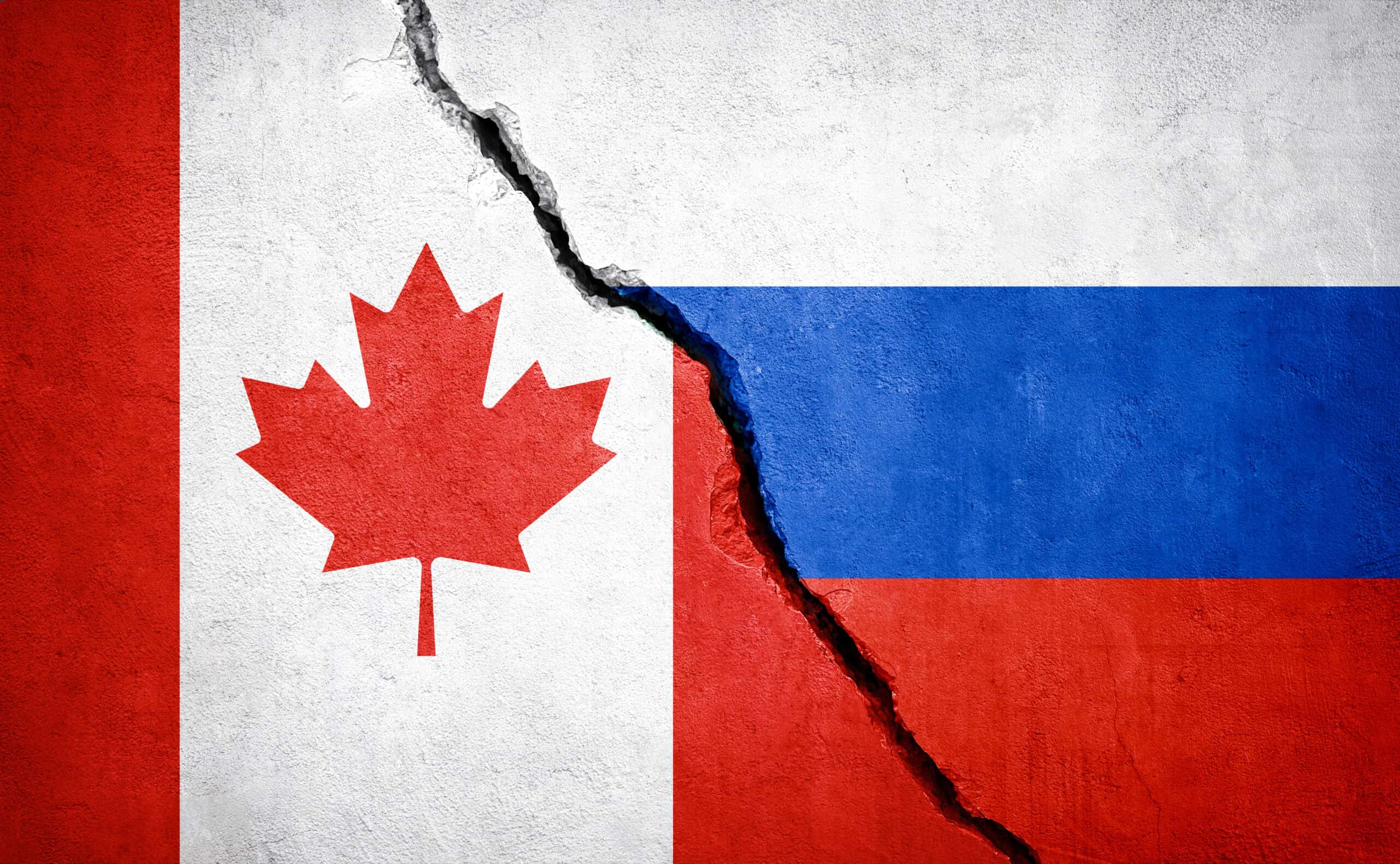Ottawa is moving to keep out Russians sanctioned by Canada, including Russian President Vladimir Putin and his close associates, through amendments to the Immigration and Refugee Protection Act (IRPA).
In addition to Putin himself, Canada has already sanctioned roughly 1,000 people from Russia, Ukraine, and Belarus, including Russian Defence Minister Sergei Kuzhugetovich Shoigu, and Russian Foreign Minister Sergei Viktorovich Lavrov, and Russian Justice Minister Konstantin Anatolyevich Chuychenko.
Read More
Things To Know When Immigrating To Canada From Ukraine
Canada-Ukraine Authorization for Emergency Travel Sees Flood Of Temporary Visa Approvals
How To Apply For The Canada-Ukraine Authorization For Emergency Travel
“In the face of the Putin regime’s brutal attack, Canada stands with Ukraine,” says Public Safety Minister Marco Mendicino.
Mendicino Vows To Exhaust All Options To Hold Russia Accountable
“Banning close associates and key supporters of Putin’s regime, including those responsible for this unprovoked aggression from entering our country is one of the many ways in which we’re holding Russia accountable for its crimes,” he says.
“We will continue to exhaust all options to uphold freedom and democracy, hold Russia accountable, and support Ukraine.”
The Russian president declared war on the neighbouring country of Ukraine and quickly invaded on Feb. 24. Within hours of the declaration of war, gunfire and explosions rang out in Kyiv, a city of three million people, in what is the biggest assault on a European state since the Second World War.
In the ensuing months, 3,700 civilians have lost their lives and 6.3 million Ukrainians have fled, seeking countries where they live in safety as refugees confirms the United Nations Office for the Coordination of Humanitarian Affairs (OCHA).
Watch Canada Immigration Video
Canada has stepped up to the plate and committed to accepting an unlimited number of Ukrainian refugees through its newly-announced Canada-Ukraine Authorization for Emergency Travel (CUAET) pathway.
By May 4, it had already received more than 204,000 applications and Canadian immigration officials had approved 91,500 of those applications.
“Canada is doing everything it can to support Ukrainians before and after they arrive in Canada,” says Immigration Minister Sean Fraser.
Ottawa Slaps Sanctions on Russian Regime Supporters
Canada has also imposed sanctions against individuals who are part of or are key supports of, the Russian regime. These sanctions were issued based on the grounds of “grave breach of international peace and security” as set out within Canada’s Special Economic Measures Act (SEMA).
Mendicino vowed on Tuesday to toughen the existing legislation, the IRPA, and ban sanctioned Russians from entering Canada as well.
These changes would allow the Canada Border Services Agency (CBSA) to deny entry to, and remove, individuals subjected to sanctions, and allow immigration officials to deny them visas.
Foreign nationals who are inadmissible to Canada could also have their applications for temporary resident visas refused or cancelled by immigration officials and may have their applications to enter Canada at ports of entry refused and be removed from the country by border officials.
Under the CUAET, Ukrainian refugees come to Canada with temporary visas which can last up to three years and are allowed to work and study.
Ukrainian Refugees Can Work, Study and Apply for Canada Permanent Residence
Once in Canada, those Ukrainian refugees can then apply for permanent residency and any work experience they gain or studying they do while in the country will only enhance their Comprehensive Ranking System (CRS) scores should they decide to complete Express Entry profiles and apply for permanent residency.
Ottawa expanded its settlement services with new programs specifically tailored for Ukrainian refugees in March, including:
- language training;
- information about and orientation to life in Canada, such as help with enrolling children in school;
- information and services to help access the labour market, including mentoring, networking, counselling, skills development and training
- activities that promote connections with communities;
- assessments of other needs Ukrainians may have and referrals to appropriate agencies;
- services targeted to the needs of women, seniors, youth and LGBTQ2+ people, and;
- other settlement supports are funded through the settlement program.
The IRCC is also providing up to 14 nights of accommodations for any of these refugees who do not already have a place to stay in Canada.
Through the Ukraine2Canada Travel Fund at least 10,000 free flights are expected to be made available for refugees fleeing the Russia-Ukraine war.
Canadians can donate their Aeroplan points through the Air Canada Foundation Ukrainian Relief Fund and Miles4Migrants websites to help cover the cost of flights for Ukrainian refugees. Canadians who would like to donate cash can do so through the Travel & Settlement Fund at the Jewish Foundation of Greater Toronto which will distribute these donations to sponsor displaced Ukrainians.





